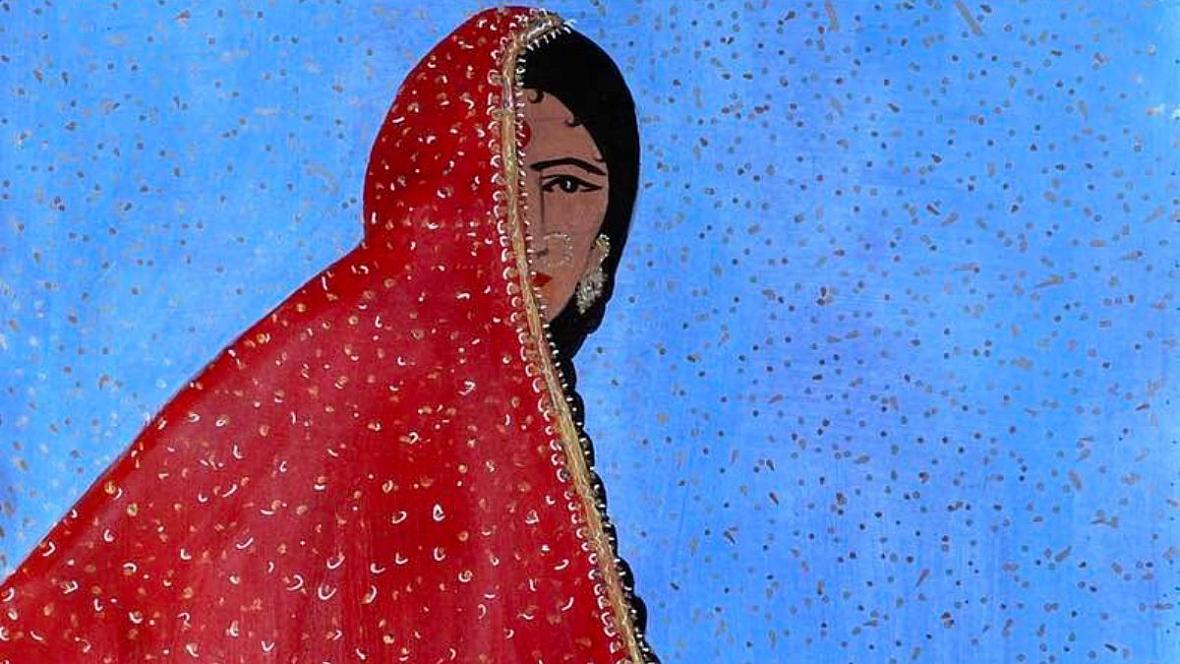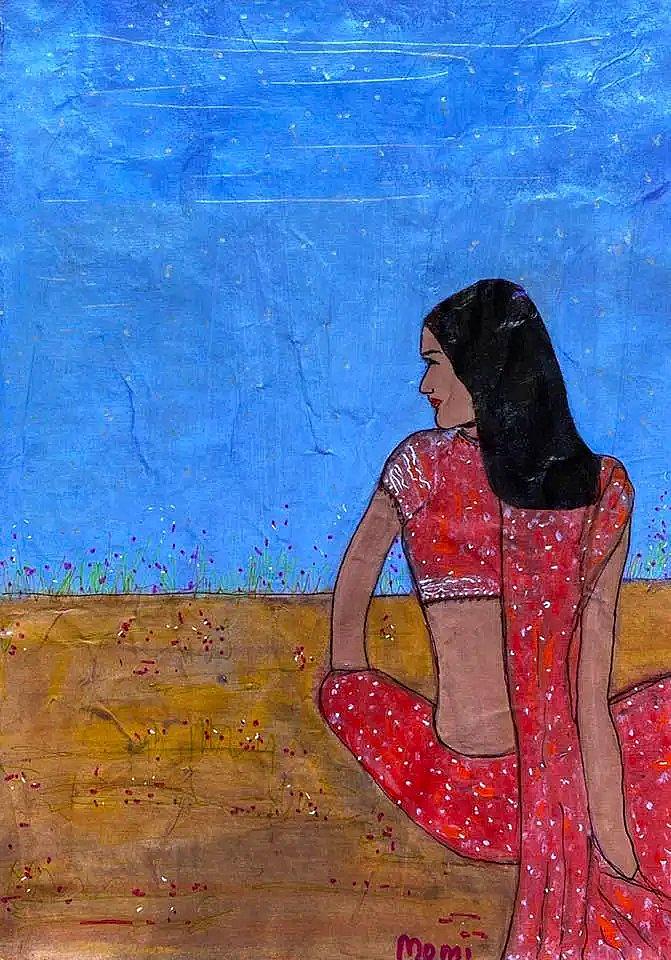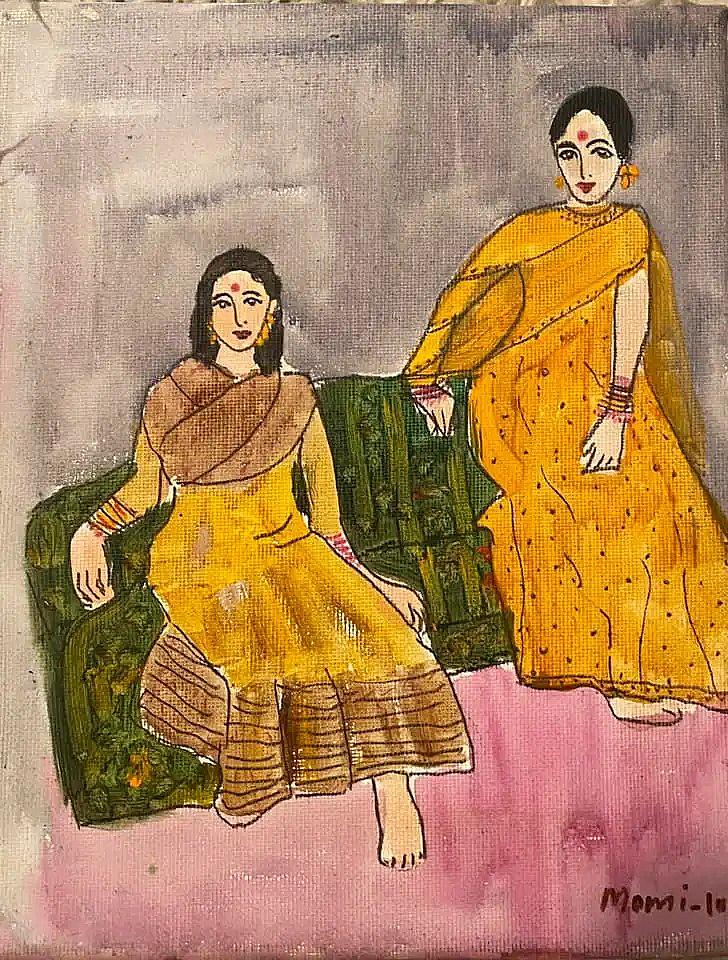Don’t Lose Eye Contact With The Immigration Officer
The story was originally published in IndiaCurrents with support from the USC Annenberg Center for Health Journalism’s Impact Reporting Fund.
Other stories include:
Audio Story Part 1: Chai With Sahelis: A Desi Dost Project – Priya’s Story
Audio Story Part 2: “It’s Not Just A Thappad” – Rennu’s Story – Chai With Sahelis: A Desi Dost Project
Audio Story Part 3: “Don’t Take My Child From Me” – Anjali Kour’s Story – Chai With Sahelis: A Desi Dost Project
Text Story Part 1: How Priya Won A Second Chance At Her American Dream: A Story of Transnational Abandonment
Text Story Part 2: How Anjali Got Her Son Back: A Story of Transnational Abandonment & Child Custody
The Desi Dost Project: Impact Reporting At India Currents
Why Riya Didn’t Find A Safe Space From Intergenerational Violence
Beaten, But Not Broken. Tanya’s Story Of Domestic Violence
My Daughter Was Kidnapped & I Did Not See Her For 22 Years – Leena’s Story
Abused and Abandoned – When will our community step up to help survivors?

Hiding by Tanya Momi
This story is part of a series on domestic violence in the South Asian community by the Desi Dost-Pathway to Parity project. It features a first-person account by a survivor whose name we have changed to protect her identity.
The immigration interview for asylum
My asylum interview at the United States Immigration Service took nearly five hours.
Nonstop.
No chai. No coffee.
My lawyer was right. The immigration officer asked me the same questions multiple times, twisting them to catch me in a lie. I was applying for asylum as a victim of domestic violence. My lawyer warned it was the toughest category. She said, ‘do not lose eye contact with the officer.’
I was in the hot seat.
On the way to the interview, I’d promised my son we’d visit Disneyland if we got asylum.
The female immigration officer had my life story before her. My lawyer made me write every detail, from the day I was born to why I left India.
My immigration file
My file had nearly 500 documents – witness statements from friends, neighbors, and coworkers in Delhi, even bills for security guards I hired to protect my home from my abusive husband.
They watched my body language as I answered.
How did you feel? Did you cry? What was your state of mind? Why did you marry this man? How did he get violent? Did you take a stand? How did your mom die? Did your sister’s support you? Why couldn’t you stop the abuse?
I didn’t know how to.
Why I got married
I got married because my mom worried there was no male figure in our family. I’m one of three sisters. My father died of cancer and kidney failure when I was 20. After that my aunts and uncles turned their back on us…. it was a bitter truth we had to accept.
I met my ex-husband through my maasi (aunt). He was a hardware engineer who’d been married before. My maasi vouched for him. She said go ahead, not every guy is bad.
My marriage proposals were insulting. They rejected me because there was no man in my family or they worried about dowry. So, I said yes to the first guy who said yes to me.
Honestly, I was kind of cornered.
The burden of being a girl
After my dad died, my mom had a brain stroke and was bedridden for seven years. My younger sister and I cared for her 24/7. Later, she’d say, “if I die what happens to you, girls? You need to find somebody.”
I felt guilty about being born into this family as a girl, about being a burden.
On my honeymoon, my husband and I went on a road trip from Delhi to Mumbai with his relatives. The dog went with us. We all slept inside the car. It was so awkward.
My husband asked for a dowry. Of course, he wanted a car, money, and gold. You know after marriage there are customs and rituals to welcome a new bride. Nothing was done for me.

Artwork by Tanya Momi
My mother-in-law said her son did me a favor
I lost my mom when I was six months pregnant. She told me to leave my husband. She said there was something wrong. Come home, we will take care of you and your child.
My mother-in-law lived with us. She began knitting a sweater when I told her I was pregnant. I was happy thinking it was for the baby. She said no, it’s for the dog.
She openly said that her son did me a favor by marrying me. She always covered for him.
I was married to him for seven years.
He quit his job without consulting me. I was forced to work. I had no option to say no.
I did not marry you for you
There were continuous fights and mental abuse.
He would spit on my face, pull my hair, and push me against the wall.
He mocked me. “You are so ugly. You have buck teeth. You have seizures.”
He said he married me for my property.
“I did not marry you for you.”
I just kept quiet.
He had an affair with a woman. She brought her kids to my house while I was at work. My mother-in-law took her kids with my son to a nearby park.
One day I caught him red-handed.
The last straw
Then things got bad.
He kept ropes and iron rods under the pillow. Once he held a hot iron near my face threatening to burn me. But he was clever. He twisted my arm and slapped me but made sure that there were no fingerprints on my face or body.
His mom never, never stopped him.
One day my husband threatened to kidnap my son if I did not sign my house over to him.
I reached breaking point.
I took my son, passports, and jewelry, and my employer found me a safe location to hide.
I was scared of this violent man. He could bribe someone to throw acid on me. As a single woman and single mom, it was hard to survive in India.
Escaping India
My sisters helped me sell our home and sponsored my trip to San Diego.
I am blessed by the women in my life. My sisters. My lawyer. The leasing manager at my building who let me use her computer to write my story. Mary, a school mom who opened her home to me and came to my hearing. And Sneh Agarwal and Uma Lakshman from SD Nari.

Bonding by Tanya Momi
A month after my interview I went to USCIS for the final verdict. I’d made a decision to leave a man and my country with just three suitcases and a very young child. If I lost my case, I’d be deported immediately.
As I opened the decision letter, the immigration officer said “Welcome to America.”
I was afraid and adrift, but I kept my promise to my son.
In June 2021, the Desi Dost Project began investigating Transnational Abandonment of Indian American women in the Bay Area, supported by USC Annenberg Center for Health Journalism and India Currents magazine. In May, Kymal and Nagarajan-Butaney received a first-place award on Open In-Depth Reporting and In-Depth Reporting from the California News Publishers Association for their investigative reporting on the issue of transnational abandonment.
[This article was originally published by IndiaCurrents.]
Did you like this story? Your support means a lot! Your tax-deductible donation will advance our mission of supporting journalism as a catalyst for change.

